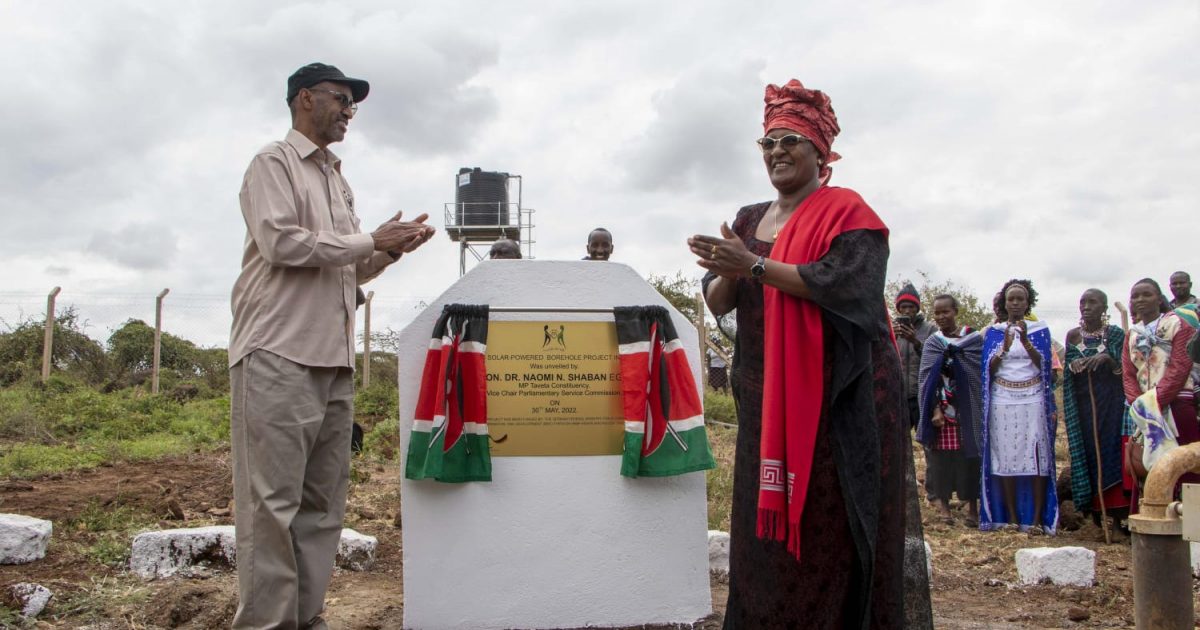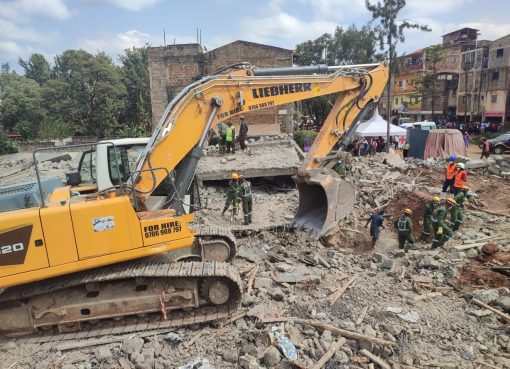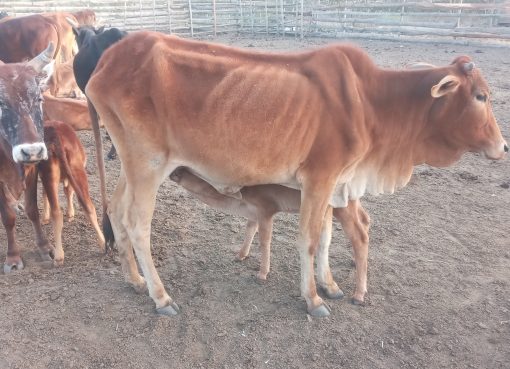To live in Langata C village in Lumi region of Taveta sub-county is to call struggle by its first name. Located at the edge of Tsavo West National Park along the border to Kajiado counties, the village has arguably suffered the worst of age-old challenges that range from prolonged bouts of severe drought to frequent incidences of human wildlife conflicts.
Severe water shortage in homes and frequent crop destruction because of wildlife invasion are constants in a village whose hardy residents have become a symbol of resilience amid great adversity.
Mr. Mohid Kaore, a retired Langata C village elder, captures this spirit of resilience succinctly.
“We have learnt to survive as best as we can because we must. Still, it is nasty when drought strikes,” he says.
Drought brings with it a severe shortage of water for Langata C and six other villages from failure of rainfall. The unpredictable weather patterns due to climate change have made the drought spells more frequent and longer. When that happens, hordes of thirsty elephants stray outside the protected area in search of water in human settlement areas. They wreak havoc on farms and destroy other structures like tanks and fences.
Mr. Kaore says unreliable rainfall in the region contributes to widespread crop failure. Hundreds of herders spend hours trekking in the scorching sun for tens of kilometers to Njukini River in search of water for their livestock.

However, a recently constructed community borehole at Lumi village is expected to address the water scarcity challenge for over 7,000 residents of seven villages bordering Tsavo National Park. Water, more than anything else, will end the torturous feet-numbing treks by herders and farmers to hunt for water whenever drought knocks.
Constructed by World Wildlife Fund (WWF) under the funding of BMZ German Federal Ministry for Economic Development and Cooperation, the seven-million Lumi Borehole project was targeted to empower and support livelihoods for rural communities in poverty-stricken areas.
Mr. Mohamed Awer, WWF Chief Executive Officer, says the borehole will have life changing positive impacts on the lives of thousands of residents in the targeted marginalized villages.
“There is now a steady supply of water. The community will be able to better engage in their livelihood improvement activities,” he says.
The project works as an example of how targeted implementation of programs can be a sustainable solution for communities living in areas hard-hit by drought. It entails engaging the beneficiaries and working together to adopt climate smart initiatives as a way of mitigating against the adverse effects of climate change.
Lumi borehole has a capacity to produce 45,000 liters of fresh water per hour. This translates to a yield over 1.08 million liters in a day. According to WWF, Lumi borehole has one of the highest yields of fresh water in the country.
“The borehole has one of the highest production in Kenya with 45 cubic meters per hour. This is sufficient to provide water for people and livestock,” says Mr. Awer.
To enhance sustainability, the project is solar-powered. This is meant to eliminate the high burden of costly power bills; a key factor that cripples most community projects that rely on commercial power.
The rise in use of solar in community projects is a pointer to a radical shift by development partners who are pushing for use of energy in the larger Tsavo with WWF disclosing the shift to clean power is a component of conservation gospel that promotes full use of green energy to spur community development.
Mr. Awer cites the borehole project as an example of nature-based solutions that address local challenges and guarantees sustainability through community involvement.
“We go for nature-based solutions to address the challenges facing communities. The solarization of this project takes away the headache of bills from the beneficiaries and they are now assured of getting water for use at minimum of cost,” he said.
Taveta MP Naomi Shabaan says the future of community development lies in forging partnerships with stakeholders. She points out that WWF constructed the borehole while the national government through the Constituency Development Fund (CDF) provided land for the project. The CDF also will be responsible for water reticulation including extension of pipes and distribution of communal watering points for use by the villages.
“This is an example on how partnerships can bring true development to the local residents and help them better their lives,” she said.
The legislator says the project will be managed by the community to entrench a sense of responsibility towards the funds pumped in. The CDF will only train the community committee members on how to manage the project for the benefit of all people.
Other villages that will benefit from the project include Langata A, Kibaratani and Lumi.
Ms. Mary James, a farmer in Lumi, discloses that the project was a welcome relief for hundreds of women in the villages. She explains that search for water for domestic use remained a nightmare for mothers with families to feed and other domestic duties to undertake.
“There was no rest. We would walk with containers for kilometers to the river hoping the shallow dams on the riverbed had not dried up. With the borehole here, the issue of walking to the river is gone,” she says.
Mr. Peter Nyamai, an elder, says with water now being readily available, the villages will make a decision on where to build a watering point at the edge of the national park for wildlife to drink. The elder explains that conflicts between humans and wildlife were also caused by lack of water. Providing water for wildlife at the border of the park would discourage them from straying into farms.
“We will eventually make a decision on where to put up a watering point for wildlife to get rid of this human wildlife conflict,” he said.
Some farmers are also mulling over the possibility of starting irrigation projects to bolster food security in the villages. Ms. Agnes Hue, a farmer, says that most farmers often planted but the crops did not germinate when rains failed. This, she adds, can be reversed now that the water project has provided them with adequate water.
“We hope that after water has reached the villages, farmers will also be allowed to engage in small-scale irrigation projects. We are not lazy; our challenge has been lack of water. We can now do proper agriculture,” she adds.
By Wagema Mwangi




